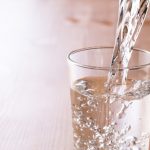Hard Water vs. Soft Water: Understanding the Difference

What Is Hard Water?
Hard water is water that contains a high concentration of dissolved minerals, primarily calcium and magnesium. These minerals find their way into the water as it passes through underground rock formations, picking up the minerals along the way. The level of hardness in water is typically measured in grains per gallon (GPG) or parts per million (PPM).
What Is Soft Water?
On the other hand, soft water is water that contains low levels of dissolved minerals, particularly calcium and magnesium. Soft water is often described as “pure” or “treated” water because it has undergone a process to remove or reduce the mineral content.
Problems Caused by Hard Water
Hard water is harmless for consumption, but it can wreak havoc on your plumbing, appliances, and daily chores. Here are some of the problems it can cause:
1. Limescale Buildup
When hard water is heated, such as when you’re using hot water for showers or appliances like water heaters, the calcium and magnesium minerals tend to precipitate and form limescale. Over time, limescale can accumulate on pipes, faucets, and appliances, reducing water flow and energy efficiency.
2. Appliance Damage
Appliances like dishwashers and washing machines are susceptible to damage from hard water. Limescale buildup can clog water lines, decrease appliance efficiency, and ultimately lead to costly repairs or replacements.
3. Reduced Cleaning Effectiveness
Hard water can make cleaning tasks more challenging. Soap and detergents don’t lather as well in hard water, leaving behind soap scum on dishes, clothing, and bathroom surfaces. This means you’ll need to use more cleaning products to achieve the same results.
4. Dry Skin and Hair
Hard water can also affect your personal comfort. The excess minerals can leave a residue on your skin and hair, causing dryness and irritation. Using soft water for bathing can result in softer skin and shinier hair.
How Water Softeners Work
Water softeners are devices designed to combat the problems associated with hard water. These systems use a process called ion exchange to remove the calcium and magnesium ions from the water, replacing them with sodium ions. The result is softened water that is much less likely to cause the issues mentioned above.
Ion Exchange Process
The ion exchange process takes place in a tank filled with small resin beads. These beads are coated with sodium ions. As the hard water flows through the tank, the calcium and magnesium ions in the water are attracted to the resin beads and stick to them. In exchange, the sodium ions are released into the water.
This process effectively “softens” the water, as the harmful calcium and magnesium ions are removed from the water supply. Over time, the resin beads become saturated with calcium and magnesium ions, so they need to be regenerated. The regeneration process typically involves flushing the resin bed with a brine solution (a high concentration of salt and water), which removes the accumulated minerals and recharges the resin with sodium ions.
Benefits of Using Water Softeners
Using a water softener provides several benefits:
1. Reduced Limescale: Water softeners significantly reduce the buildup of limescale in your plumbing, appliances, and fixtures, extending their lifespan and improving their efficiency.
2. Energy Savings: With less limescale in your water heater, it operates more efficiently and requires less energy to heat water, which can lead to cost savings on your energy bills.
3. Cleaner Dishes and Laundry: Soft water improves the cleaning power of detergents and soaps, resulting in cleaner dishes and laundry with less soap residue.
4. Softer Skin and Hair: Soft water is gentler on your skin and hair, leaving them feeling softer and less dry.
5. Reduced Maintenance: With the mitigation of limescale and other hard water-related issues, you’ll likely experience fewer plumbing and appliance maintenance problems.
Choosing the Right Water Softener
When selecting a water softener, it’s essential to consider your specific needs. Factors to keep in mind include the hardness of your water, the size of your household, and your budget. Water softeners come in different sizes and capacities, so choose one that matches your requirements.
Additionally, you’ll need to determine the type of water softener that best suits your needs. The most common types are salt-based water softeners and salt-free water conditioners. Salt-based softeners are highly effective at removing minerals but require periodic salt replenishment. Salt-free conditioners, on the other hand, are maintenance-free and work by neutralizing the minerals instead of removing them. They are a good option for those concerned about sodium intake.
Conclusion
Understanding the difference between hard and soft water is essential for maintaining the longevity of your plumbing, appliances, and personal comfort. While hard water can lead to limescale buildup, increased energy consumption, and cleaning challenges, water softeners offer an effective solution to mitigate these issues. By choosing the right water softener for your specific needs, you can enjoy the many benefits of soft water and ensure a trouble-free water supply for your home.
Got Questions? Let Us Help!
Categorised in: Water Softeners
